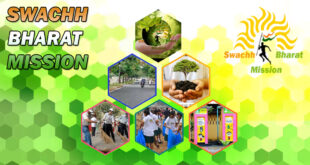Kerala is increasingly becominga transgender-friendly society
Where have Kerala’s hijras gone?” was the rhetorical headline of my story on transgender individuals (TGI) published in The Hindu a decade ago. The story opened with this sentence: “After a quarter century of tortured life as a woman trapped in a man’s body in a Kerala village, Geeta had fled to Chennai 16 years ago.”
The story described how Geeta was “taunted, insulted and physically harassed at school, home and on the street, just because I talked and behaved like a woman.” It ended on this pessimistic note: “Small wonder then, transsexuals are not visible in Kerala.” A decade later, the State is a different place. The socio-cultural landscape has changed to tolerate an increasing visibility of TGIs, with the result that those who had fled the State are returning. Thus, there have been newspaper headlines recently on TGIs getting driving licences, two people getting college admission under the TGI quota, separate washrooms at Maharaja’s College, and even the State government paying Rs. 2 lakh for a sex change surgery. For TGIs, Kerala was the worst State to be in. So, in the span of a decade, how did society in Kerala transform itself from being hostile to being grudgingly accommodative?
“It’s the result of a strong political will,” says psychiatrist and social commentator, C.J. John. “It’s an interesting case of politicians and administrators acting to reform social attitude.” The ‘State Policy for Transgenders in Kerala 2015’, which aimed to provide the “right to live with dignity” reflected this political will. The previous government (Oommen Chandy) and the current government (Pinarayi Vijayan) walked the extra mile to implement the policy. Kochi Metro set an example by allotting a jobs quota. Village and district panchayats and municipalities have been tasked with finding jobs, running special training and skills programmes and welfare projects. Police harassment has fallen drastically. A TG Justice Board addresses issues of discrimination and violence while a TG cell in the Social Justice Department handles issues such as housing. The TGI rights scene is shining.
Several other factors preceded the government’s pro-active approach, including the global campaign for gay marriage, the national campaign for decriminalising homosexuality (scrapping Section 377), the pride parades and the rising voices of Dalits, LGBTs and other marginalised communities. A hyper-active Malayalam media mirrored and transferred the energy to an emerging band of TG activists. The anti-HIV campaign threw up a battery of trained TGIs who later spearheaded the rights drives.
Source: https://www.thehindu.com/todays-paper/tp-opinion/a-rainbow-coalition/article24683998.ece
 Chinmaya IAS Academy – Current Affairs Chinmaya IAS Academy – Current Affairs
Chinmaya IAS Academy – Current Affairs Chinmaya IAS Academy – Current Affairs



